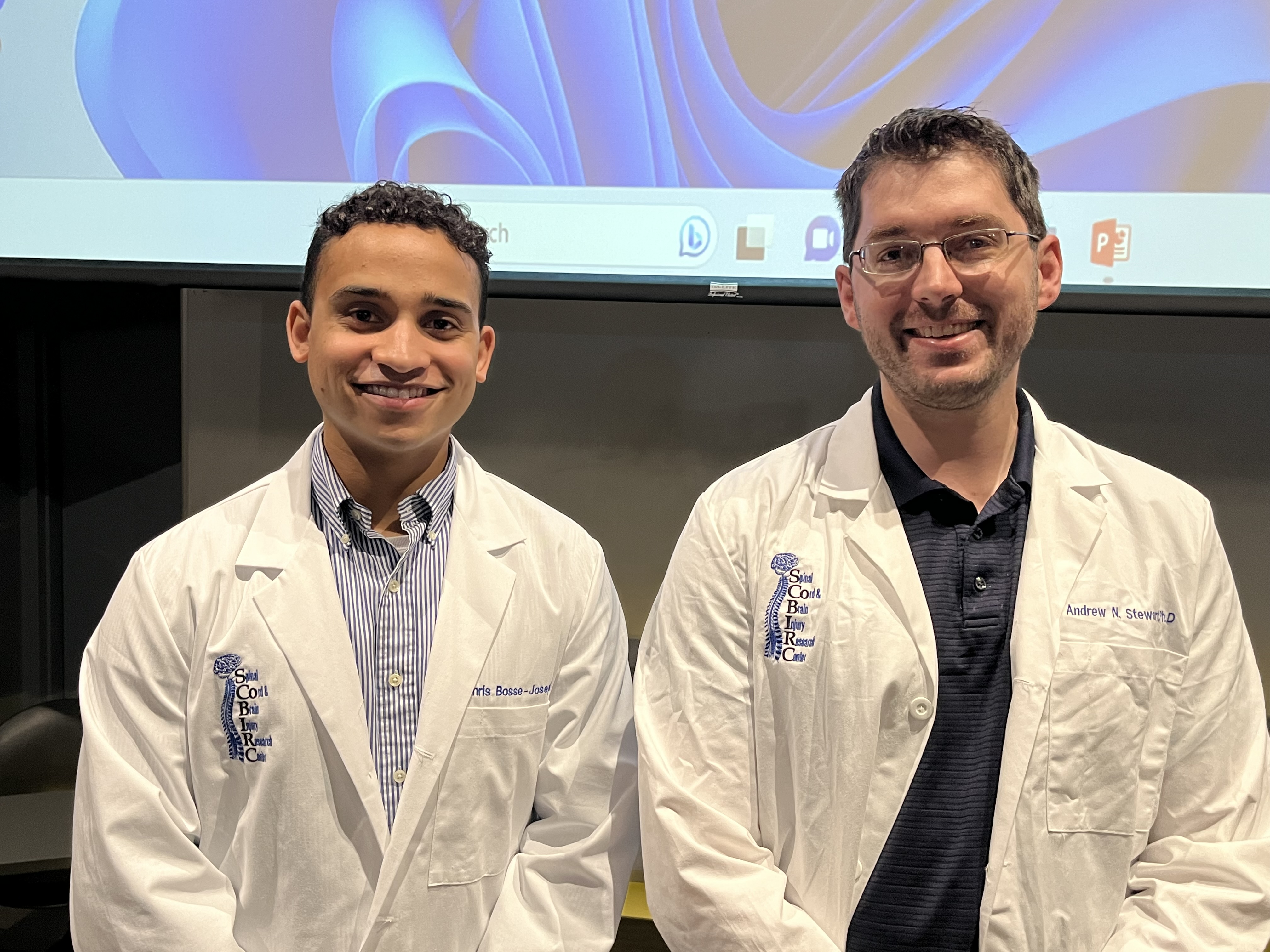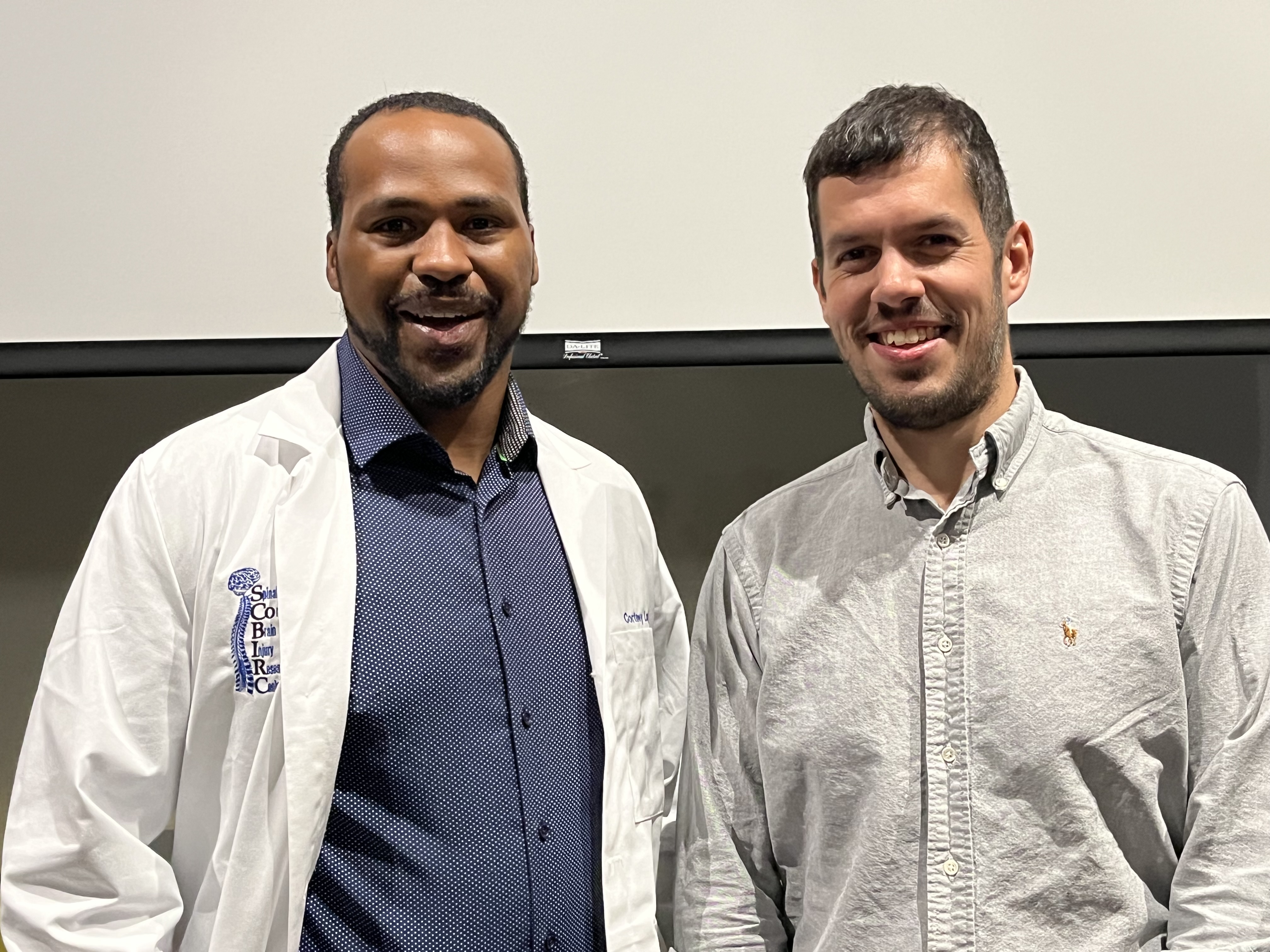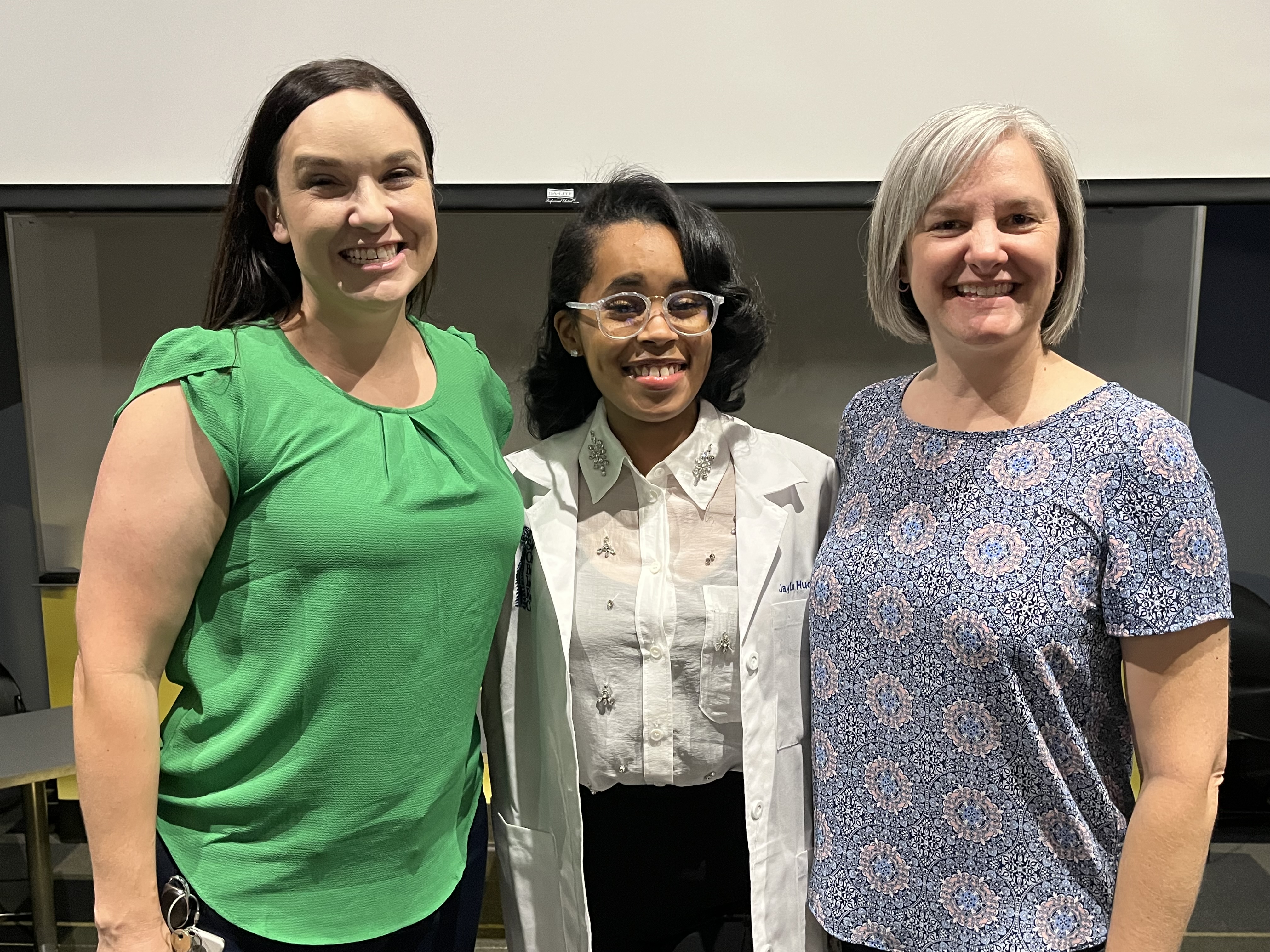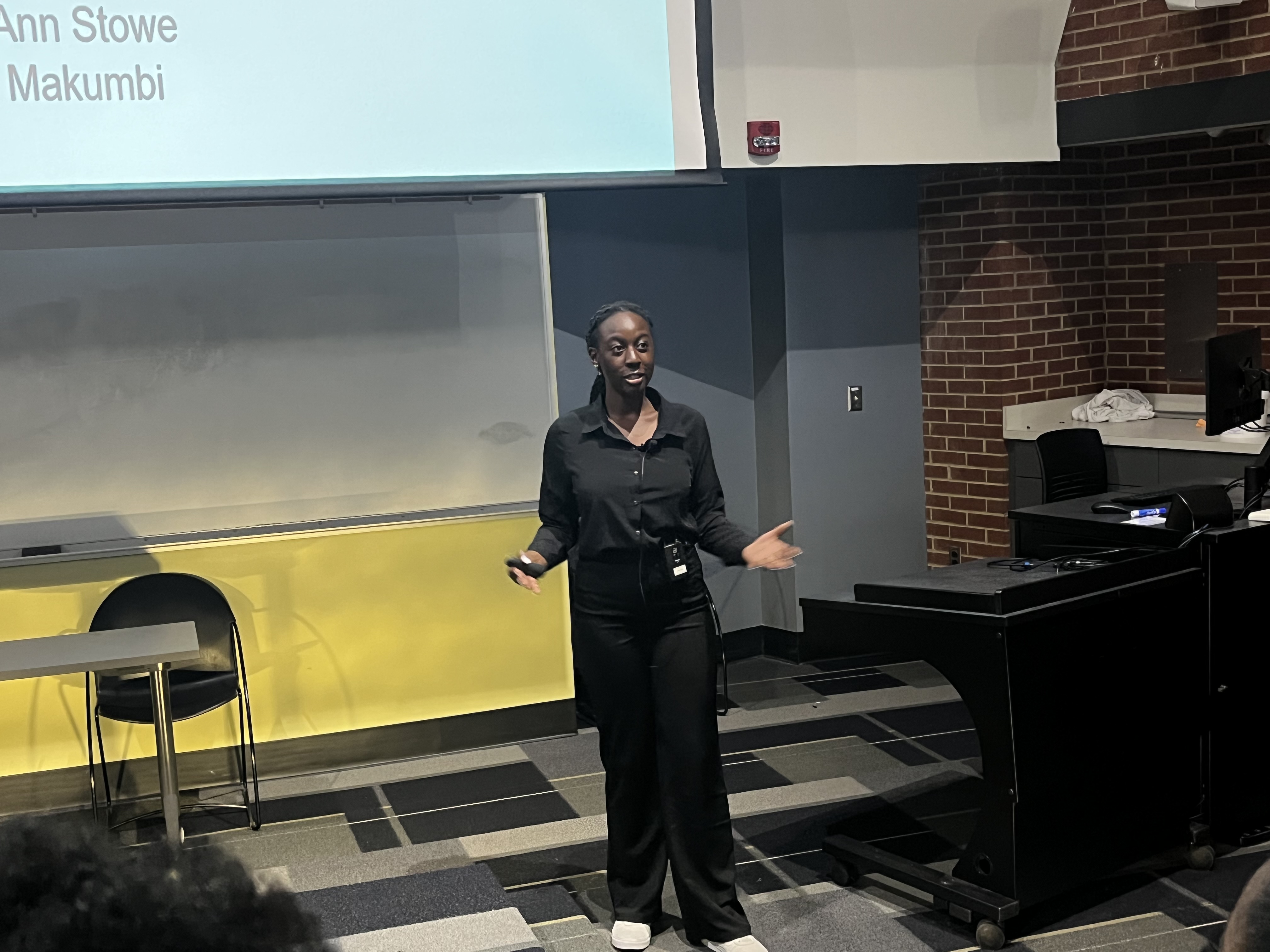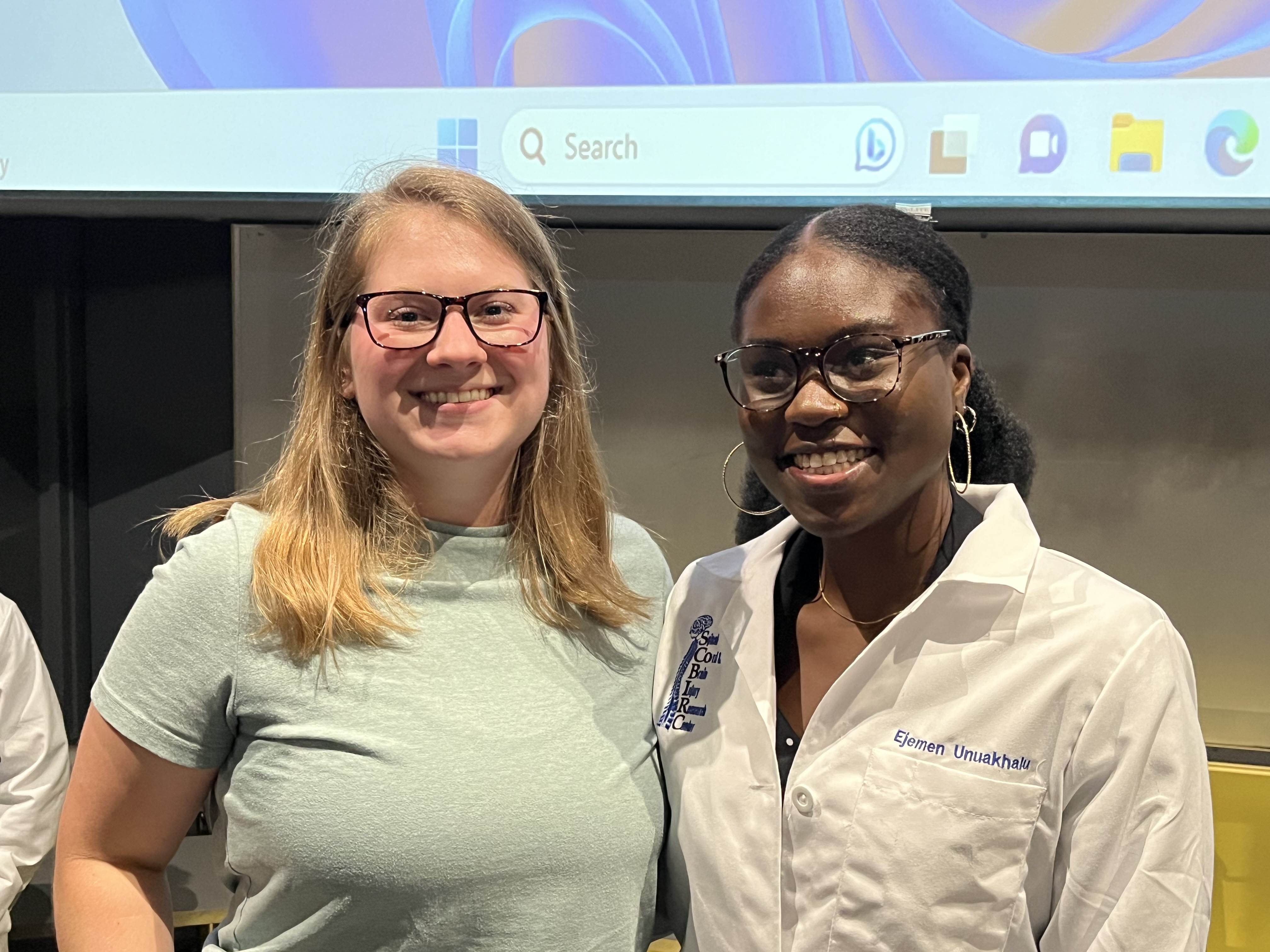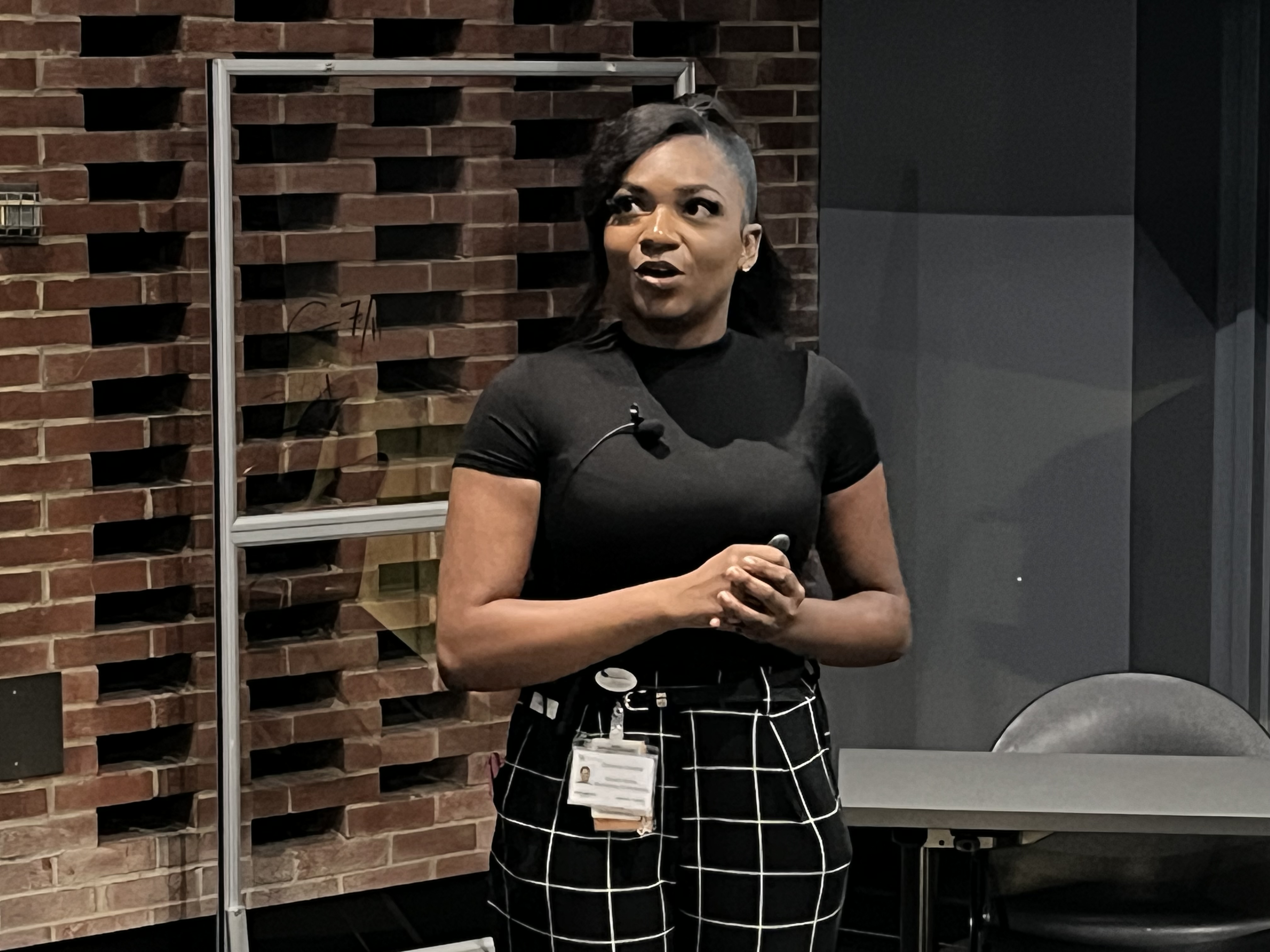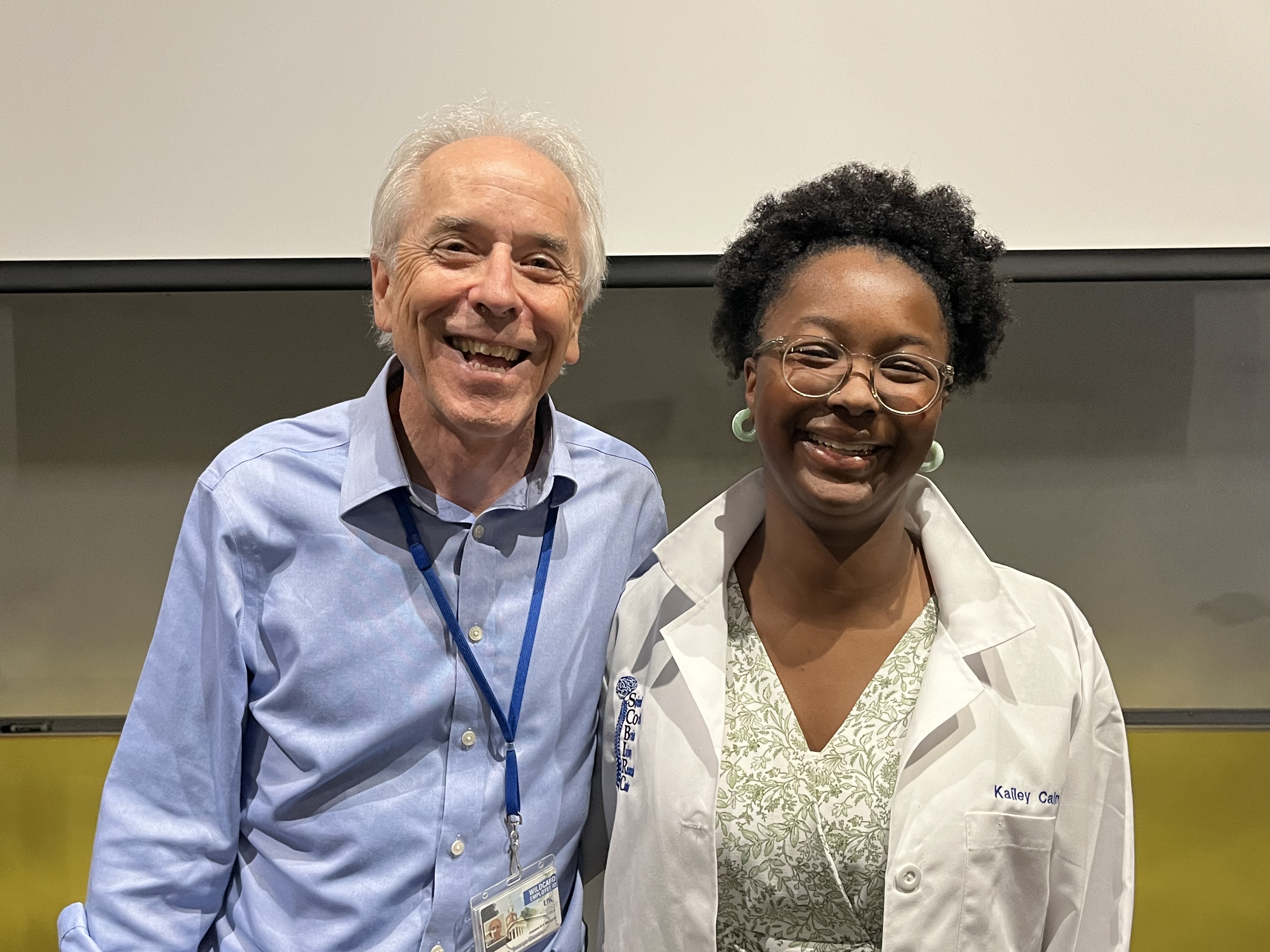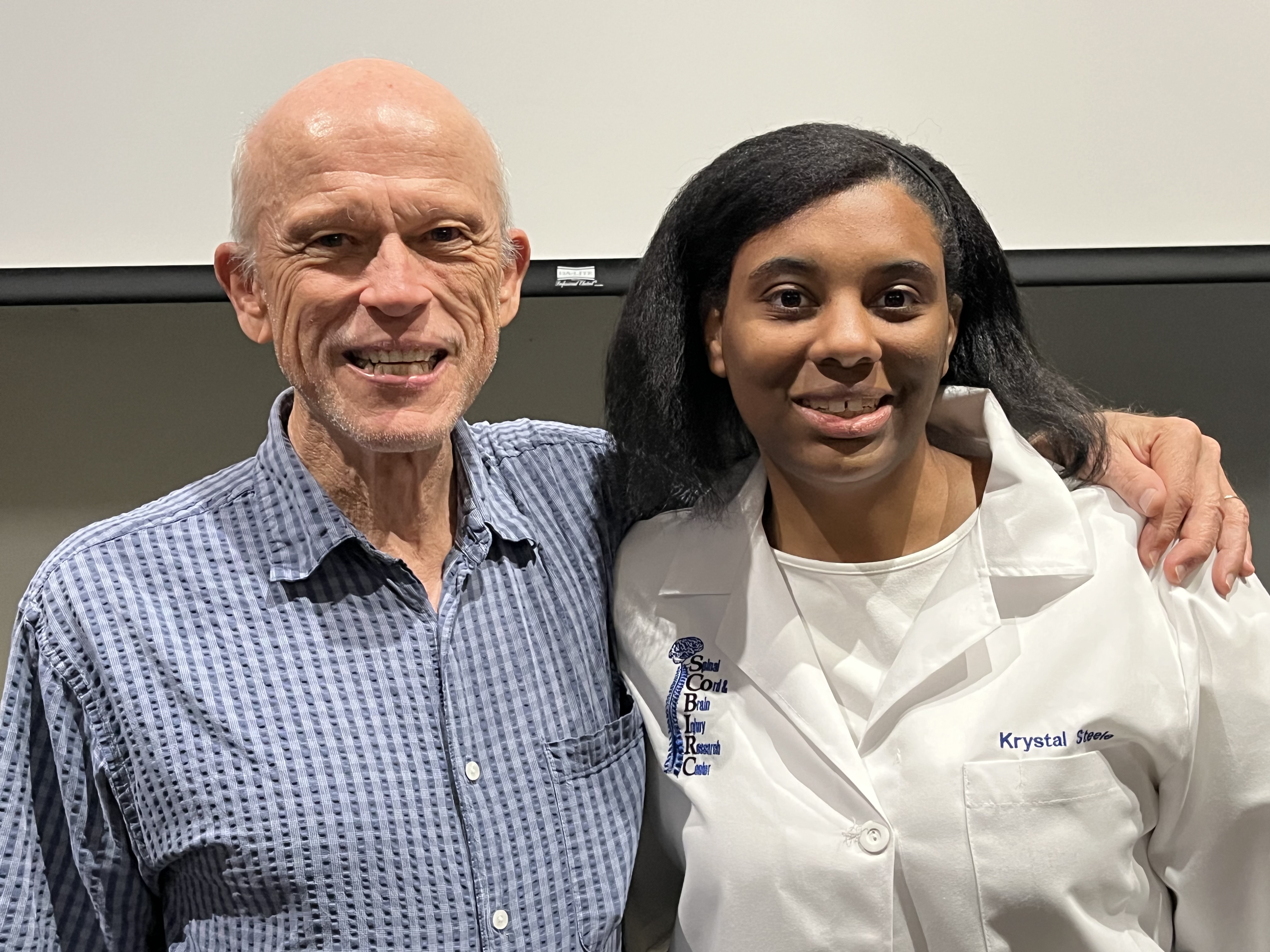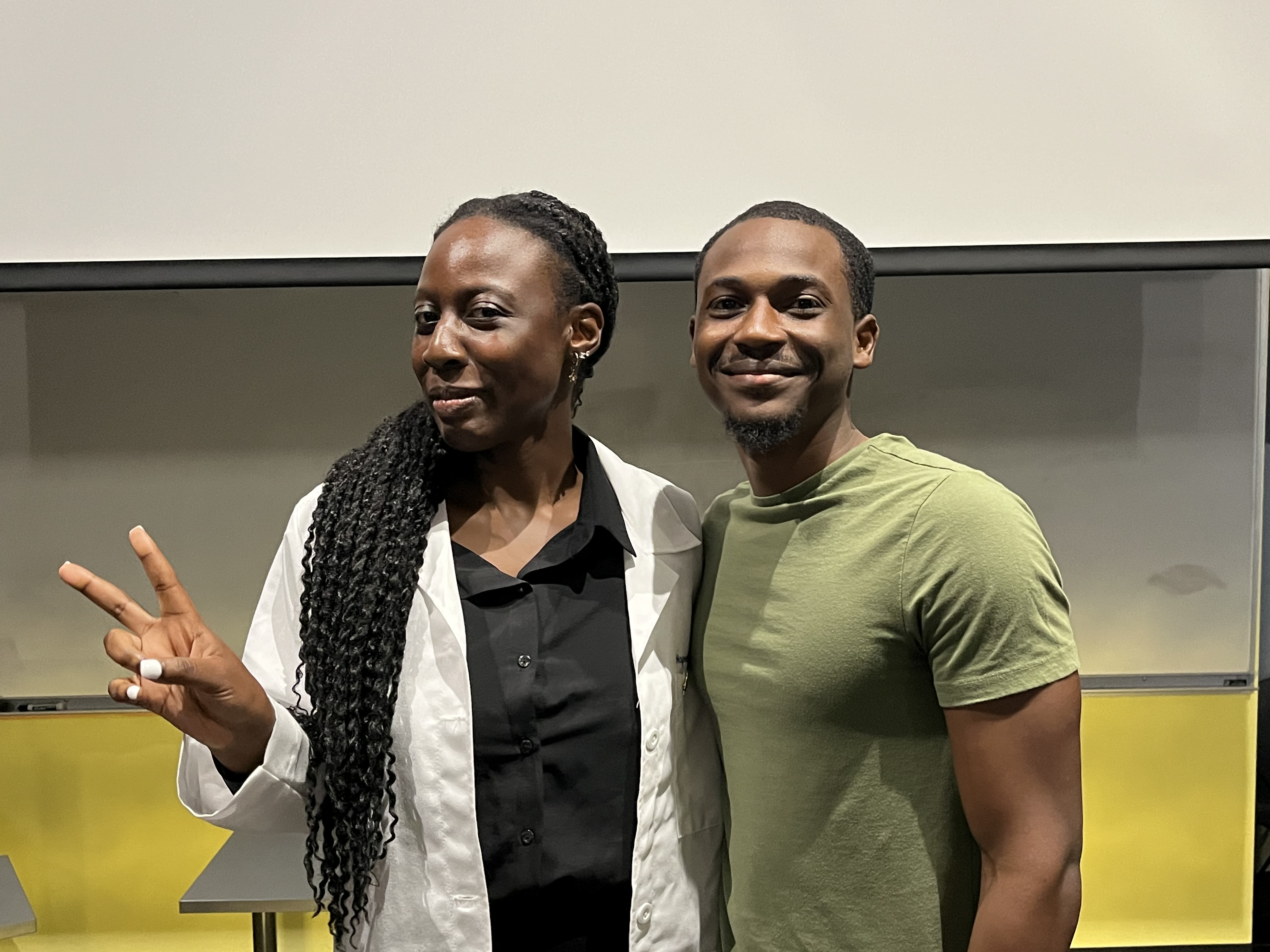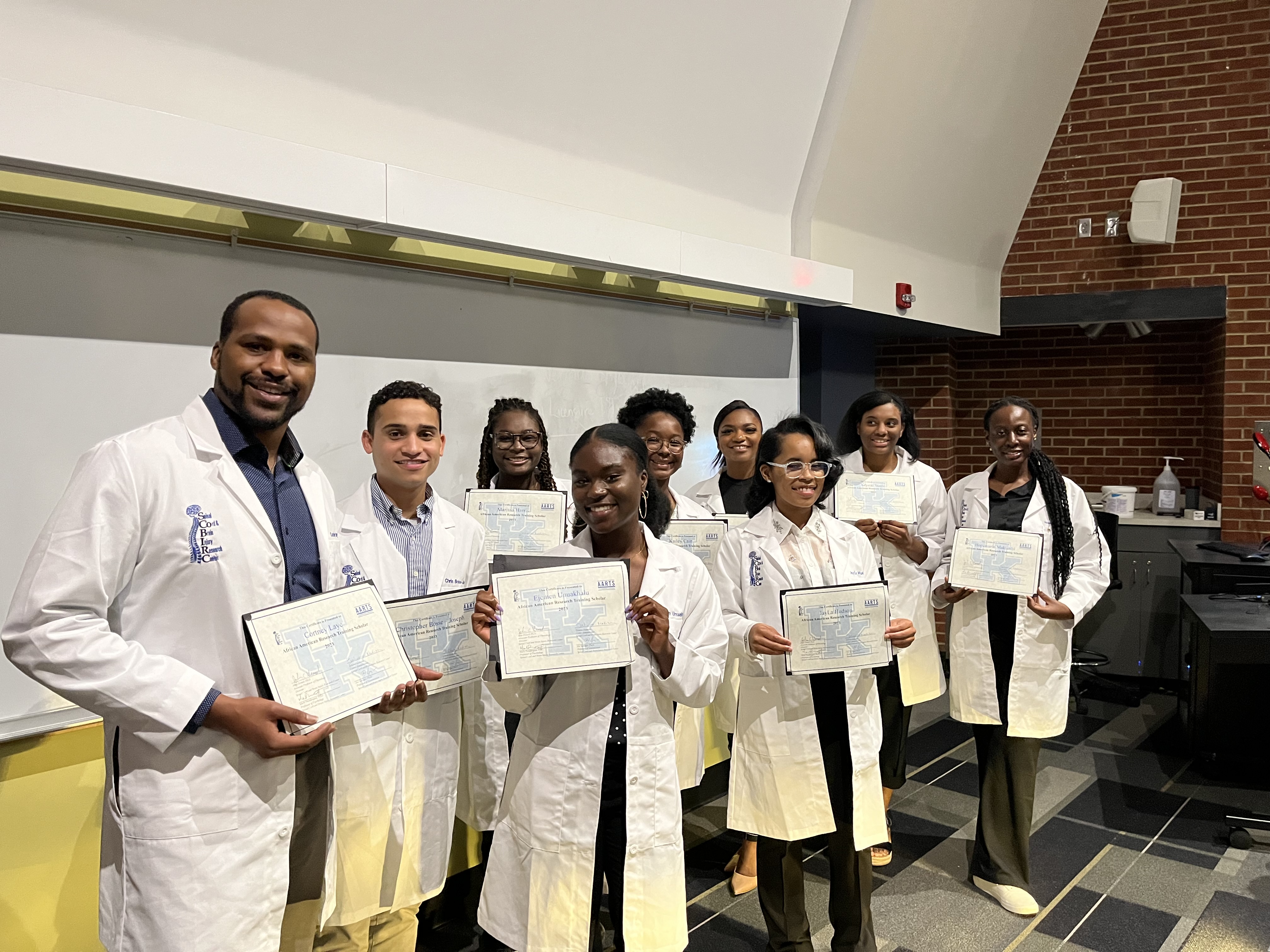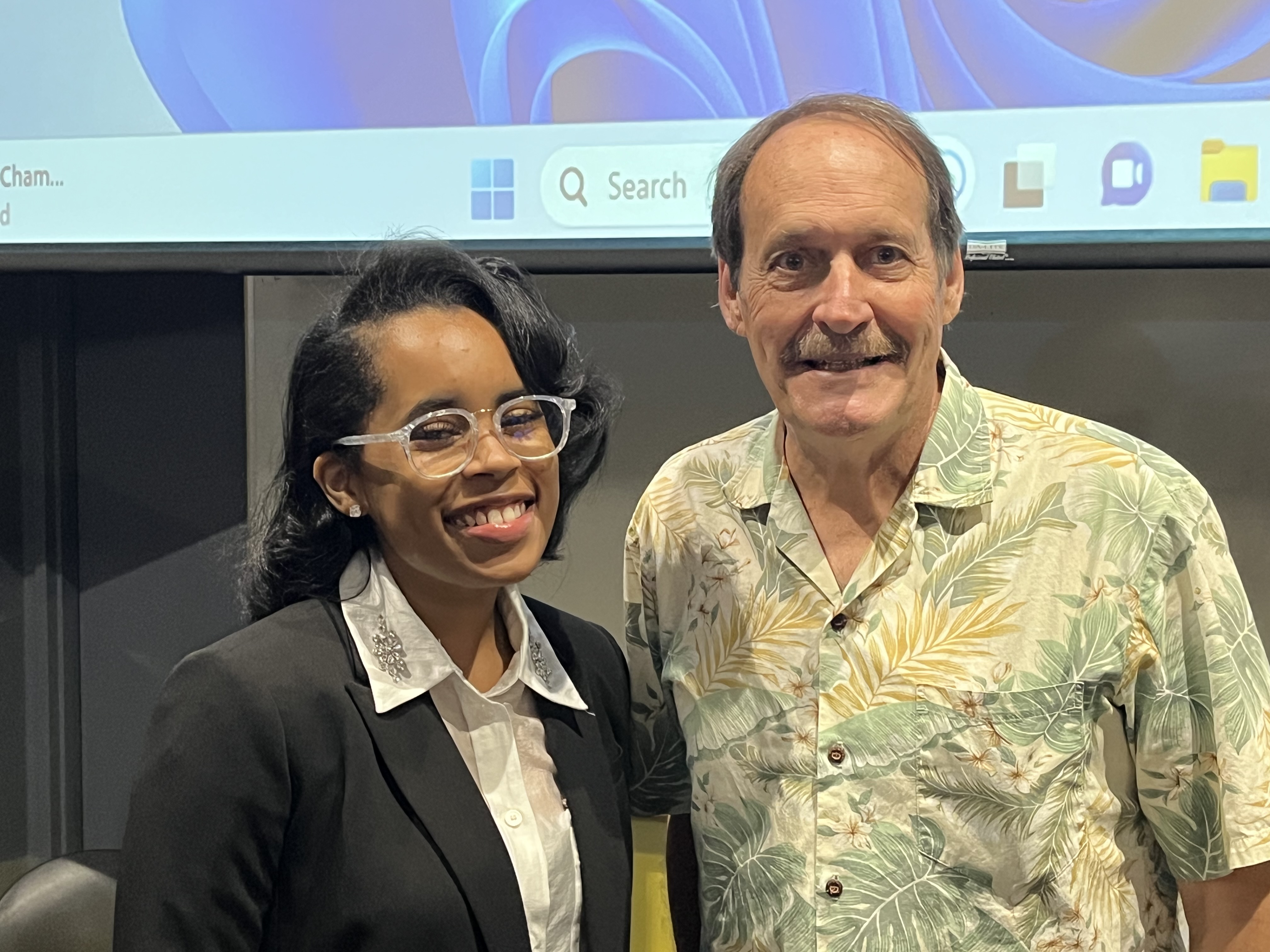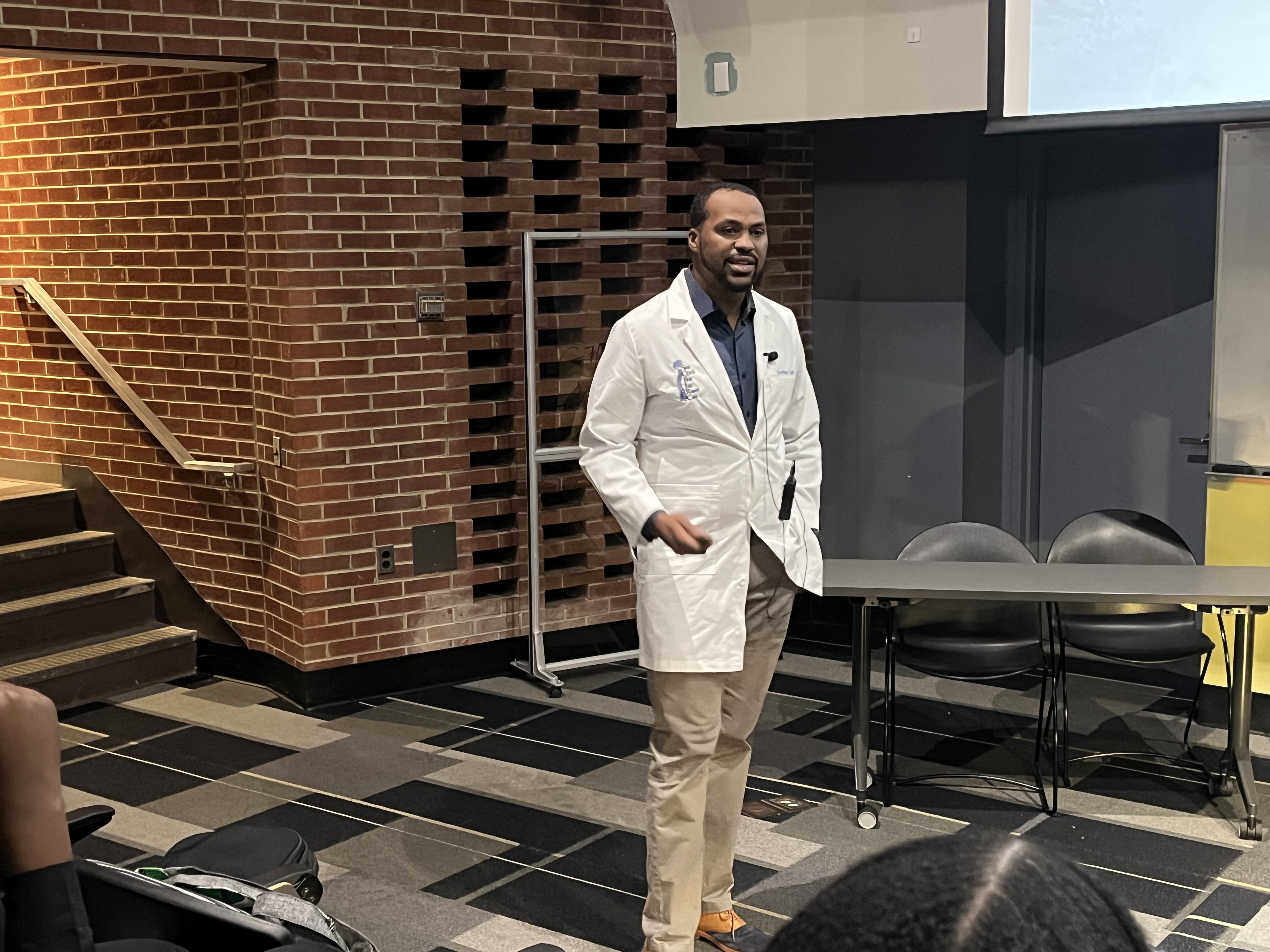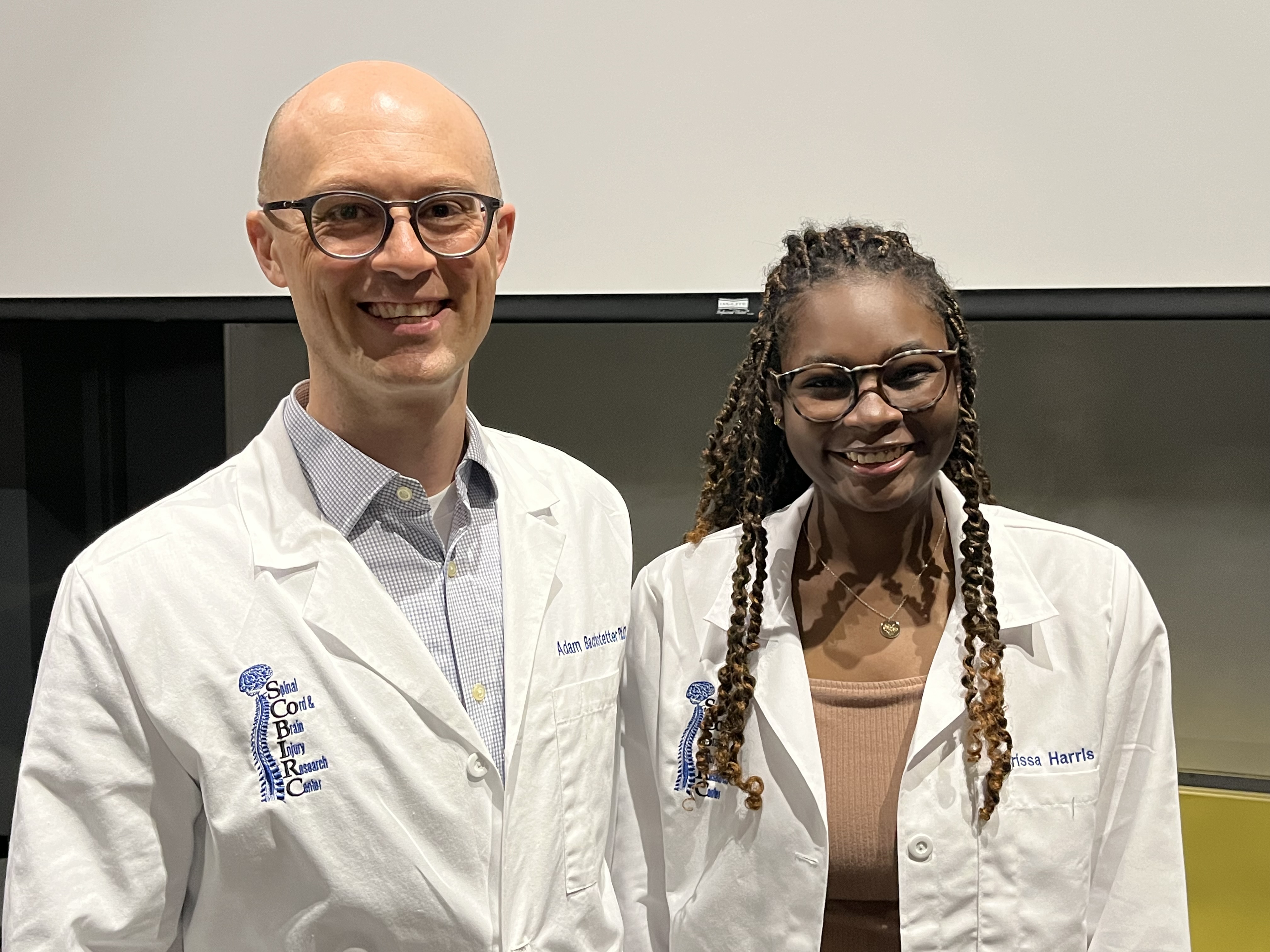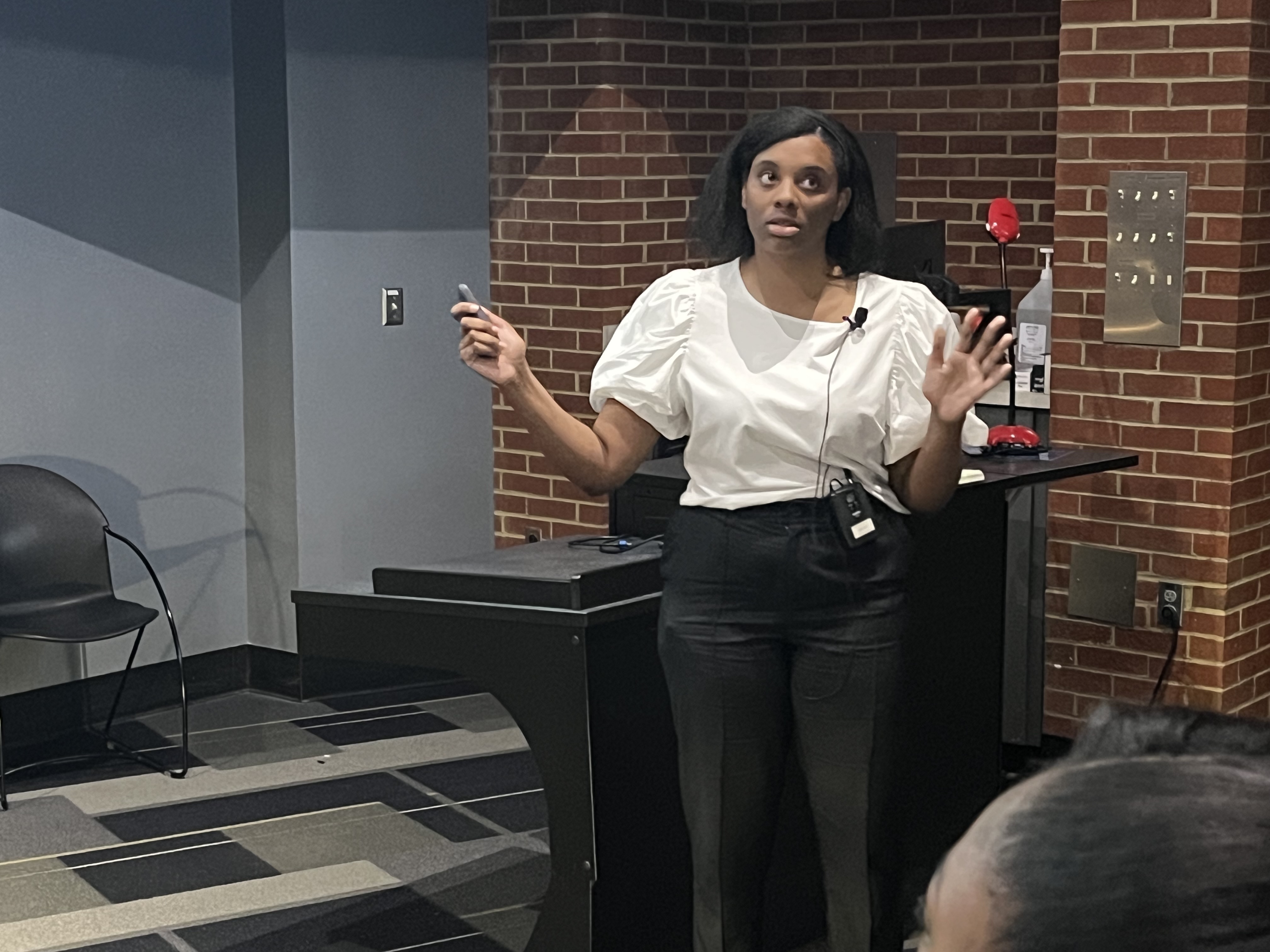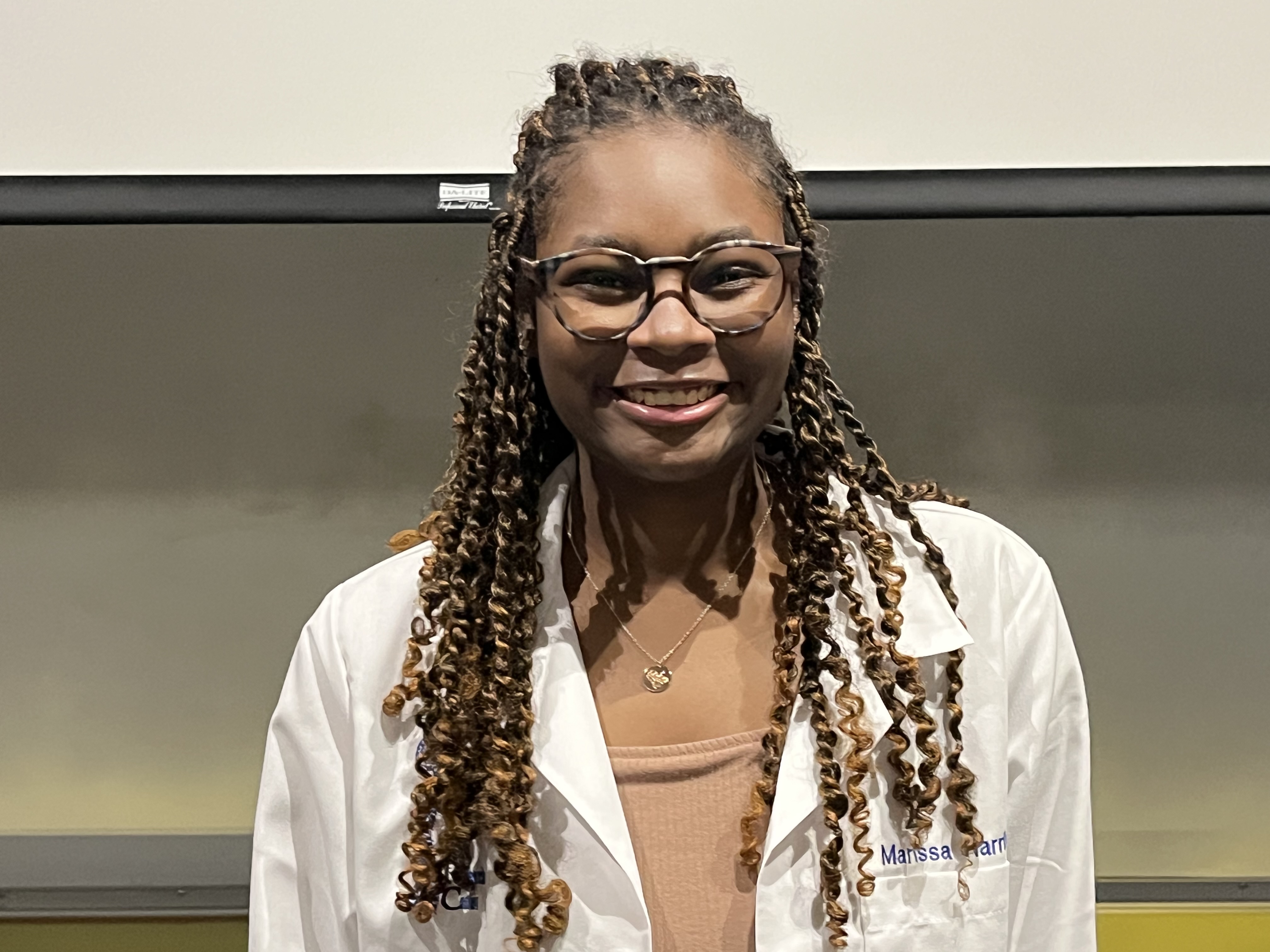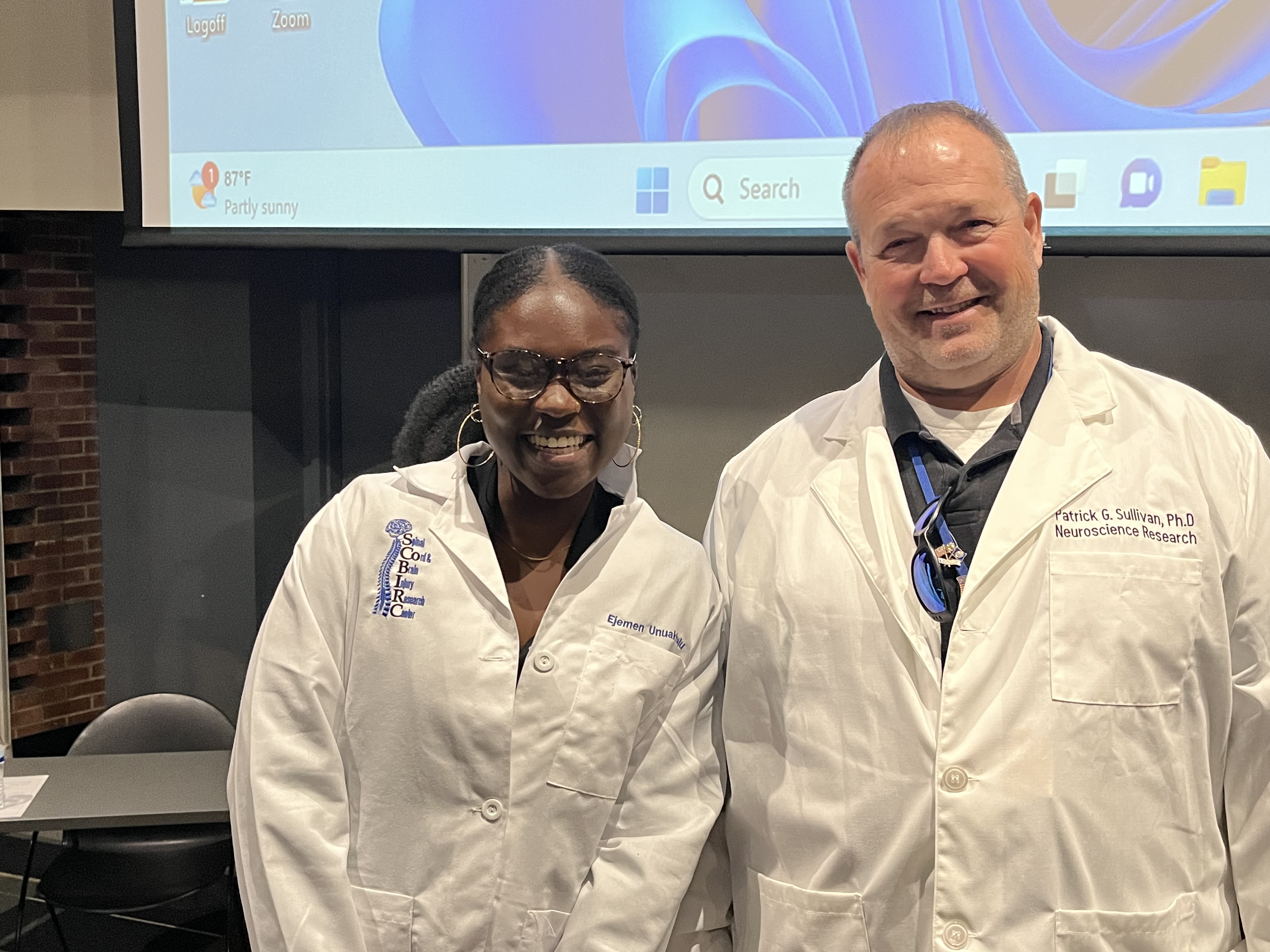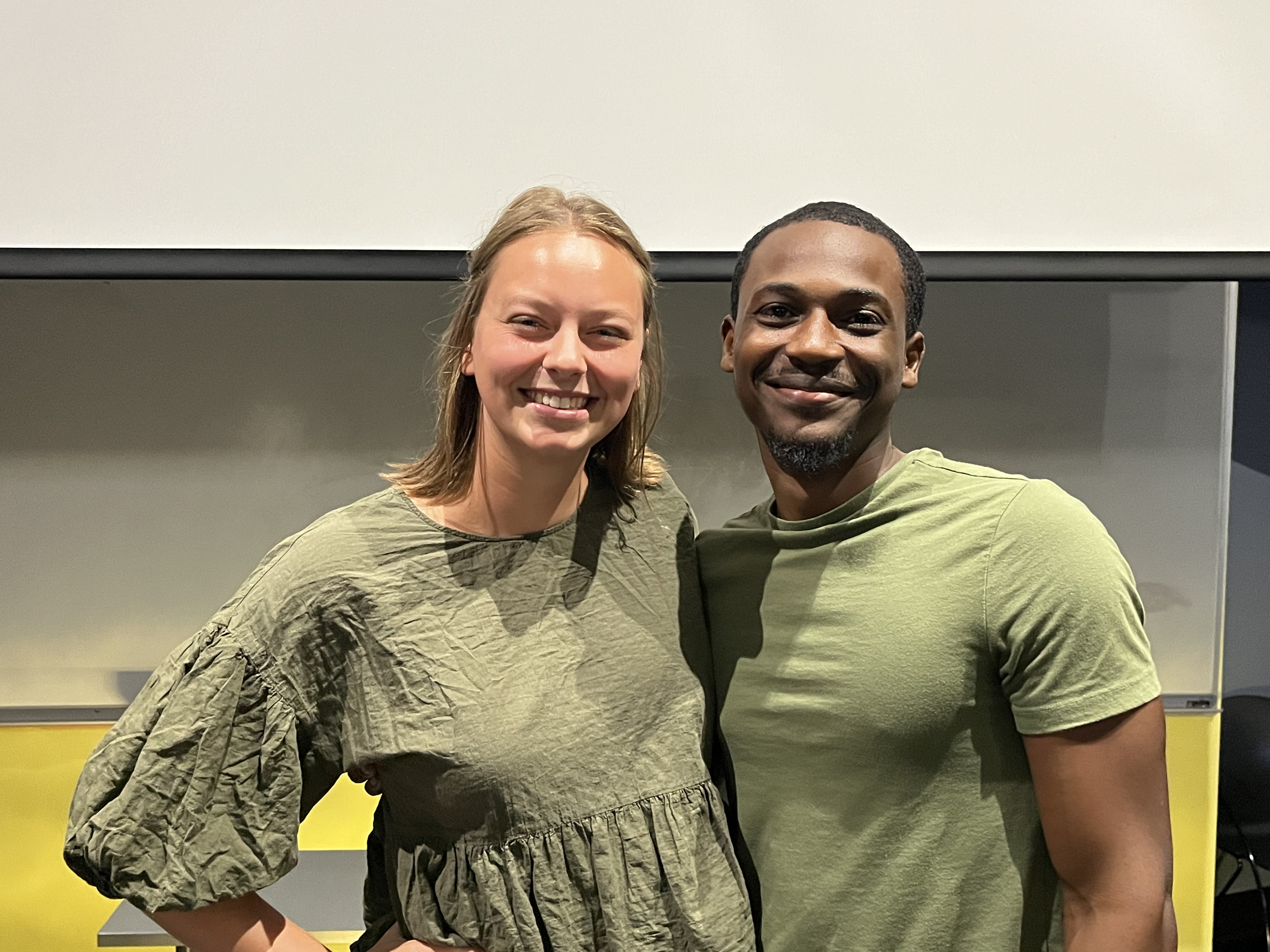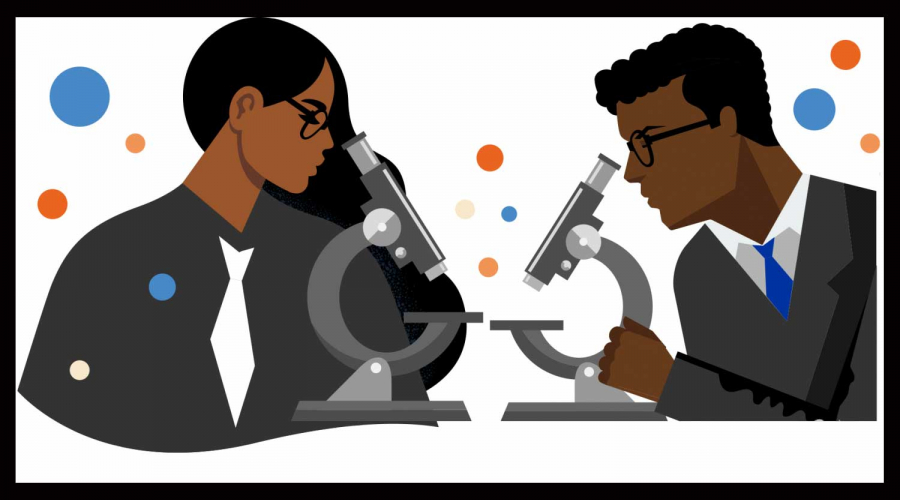
African American Research Training Scholars Program
Spinal Cord and Brain Injury Research Center
The Spinal Cord and Brain Injury Research Center (SCoBIRC) at the University of Kentucky established the SCoBIRC African American Research Training Scholars Program (AARTS) to provide qualified students funded research training in neurotrauma. Black faculty and students are heavily underrepresented in the field of neuroscience, and the AARTS program was established to enhance the pipeline. The current award is a $6000 summer stipend.
Applications for 2024 will be due on March 1st, 2024.
For application requirements and other information please contact Zelneva Madison
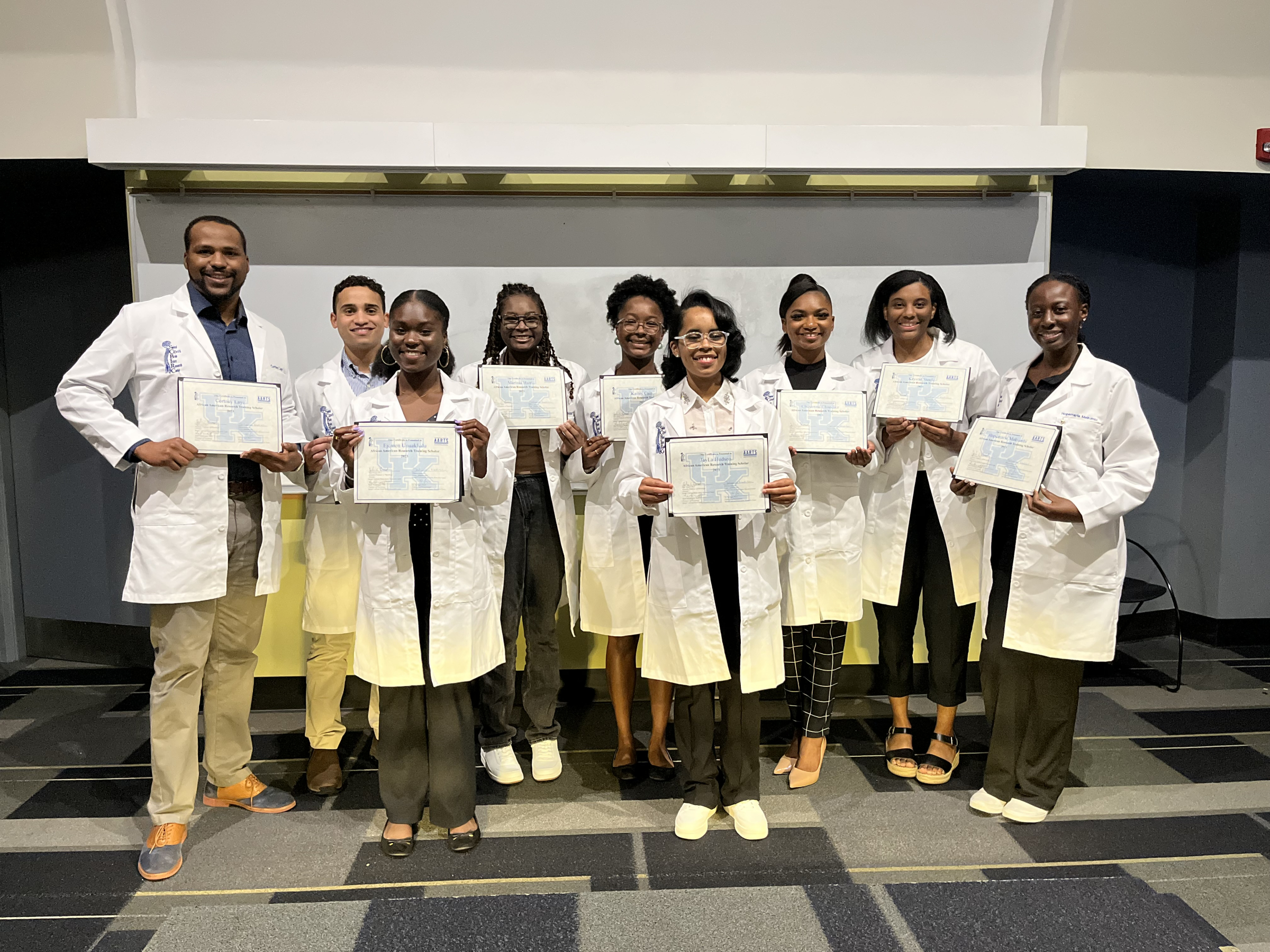
The SCoBIRC AARTS Program Celebrates the 2023 Class of Scholars as well as Their Research and Mentors
From Left:
Cortney Laye (Mentored by: Brad Hubbard, PhD)
Christopher Bosse - Joseph (Mentored by: Andrew Stewart, PhD)
Marissa Harris (Mentored by: Adam Bachstetter, PhD)
Kailey Cain (Mentored by: Steven Estus, PhD)
Cheyenne Chandler (Mentored by: Jamie Sturgill, PhD)
Krystal Steele (Mentored by: Michael Bardo, PhD and Warren Alilain, PhD)
Hopemarie Makumbi (Mentored by: Ann Stowe, PhD)
In front, from left:
Ejemen Unuakhalu (Mentored by: Patrick Sullivan, PhD)
JayLa Hudson (Mentored by: Amanda Trout, PhD)
Photos from the 2023 AARTS Symposium
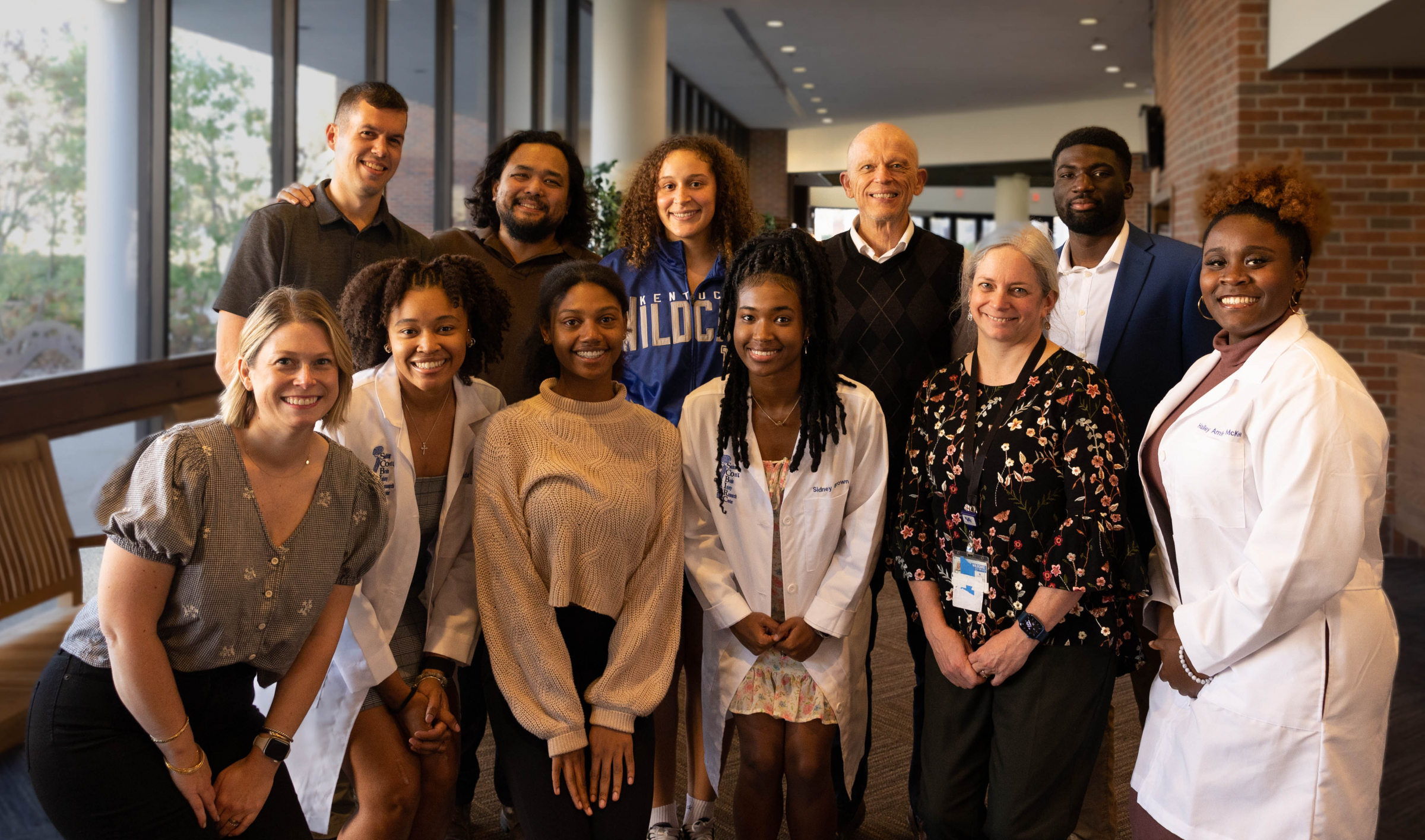
The SCoBIRC AARTS Program Celebrates the second Class of Scholars as well as Their Research and Mentors
Sidney Brown - Mentor Warren Alilain
Jaida Garrett - Mentor Brad Hubbard
Jocelyn Martin - Mentor Michael Bardo
Hailey "Amira" McKee - Mentor Ann Stowe
Christopher Otieno - Mentor Rachel Hogg- Graham
Ashley Wright - Mentor Richard Ingram*
*Not Pictured: Janelle McKinney - Mentor Adam Bachstetter
SCoBIRC is proud of the first and former class of AARTS Scholars, their research projects, and SCoBIRC mentors.
Nolan Abdelsayed – “Neuroinflammation as a Contributor to Secondary Brain Injury Following a Mild Closed Head Injury” (Mentor: Adam Bachstetter)
Jordon Burdette – “Cellular Regeneration in the Injured Spinal Cord” (Mentor: Warren Alilain)
Urim Geleta – “MicroRNA Regulation of Neuroinflammation Following TBI” (Mentor: Joe Springer)
Alexa Halliburton – “Age and Social Enrichment as Determining Factors in SCI Recovery” (Mentor: John Gensel)
Bisimwa “Jack” Nzerhumana – “Mitochondrial Uncoupling Promotes Energy Metabolism Following TBI” (Mentor: Pat Sullivan)
The [inaugural] AARTS program more than exceeded our expectations, with regard to both the level of student interest in the program and the depth of relationships formed between faculty and trainees. The program was designed to provide immersive experiences in research, professional development, and mentoring. Our faculty and trainees demonstrated genuine commitments to each aspect of the program’s mission, and it is clear that long-lasting relationships, which will benefit the trainees for years to come, were formed.
